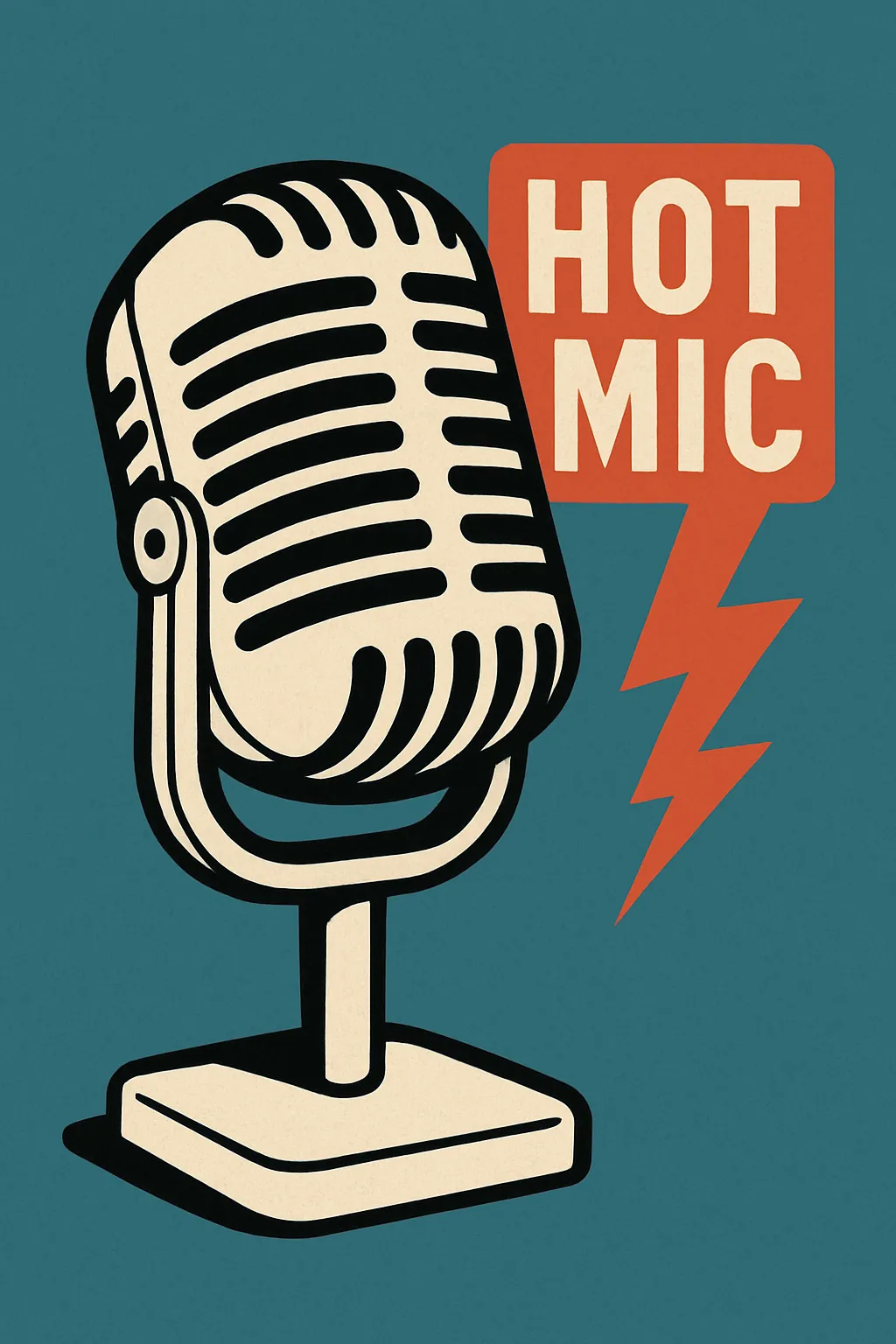Hot Mic, Cold Truths: A Neurodiversity Leader Gets Honest
 This is an imagined hot-mic moment of a composite neurodiversity leader speaking candidly backstage at an autism conference right before a presentation on rethinking service delivery for high-support autistic people. This isn’t a critique of any one person or organization — it’s a composite reflection on the pressures and paradoxes that even well-meaning advocacy can’t escape:
This is an imagined hot-mic moment of a composite neurodiversity leader speaking candidly backstage at an autism conference right before a presentation on rethinking service delivery for high-support autistic people. This isn’t a critique of any one person or organization — it’s a composite reflection on the pressures and paradoxes that even well-meaning advocacy can’t escape:
I believe all autistic people, no matter how dependent, have an unshakable right to autonomy. But I also know — and I rarely say this out loud — that our framework sometimes asks too much of families who are already at their breaking point.
We don’t have the systems in place to provide the support we insist people deserve. So we push for idealistic policies that don’t exist, and when families crack under that pressure, we blame them for failing instead of blaming the state for abandonment.
We’re not always transparent about trade-offs. Sometimes, in our effort to affirm autonomy, we unintentionally suggest that independence is always within reach — and that can leave some families, and some autistic people, feeling unseen.
Sometimes, we speak as if the needs of people who need help eating, dressing, or using the bathroom are the same as those of verbal, college-educated self-advocates. They’re not. And when people like you push us to acknowledge that, we bristle, because deep down we fear it would fracture the coalition.
Look, I know how hard it is. I do. I’ve seen families collapse under the weight of supporting someone who needs 24/7 care. I’ve seen people burn out, go broke, cry in frustration. I’ve also seen how that suffering gets weaponized — how it’s used to justify silencing us, pathologizing us, erasing us.
Our whole mission is to stop that erasure. To say: we are here, we are whole, and our lives matter — not conditionally, not someday, but now. That doesn’t mean we think every autistic person can just bootstrap their way to independence. It means we don’t accept the premise that our worth is tied to productivity, or that those with the most visible support needs have less to say.
But yes, our model demands a lot from families. It asks them to do the emotional work of decentering themselves. That’s hard. We know it’s hard. But we’ve seen what happens when they don’t: abuse, coercion, control masquerading as care.
Do we always get the tone right? Maybe not. But we are unapologetically on the side of autistic self-determination — even when it’s messy, even when it’s inconvenient. Especially then.
I understand why families are desperate. I understand why some researchers feel urgency. But desperation doesn’t justify throwing the most vulnerable of us under the bus. Every single time society has tried to ‘help’ disabled people without our voices, it’s gone badly. Institutions, eugenics, sterilization, ABA (Applied Behavior Analysis) — all done in the name of care. Never again.
Do I worry that some autistic people struggle more than others? Absolutely. But that’s not a reason to divide us into worthy and unworthy lives. It’s not a reason to glorify independence at the expense of interdependence. And it’s not a reason to give parents or researchers veto power over our humanity. People once said I was too disabled to live independently. They were wrong. We can't make that call for someone else.
If you're worried about burnout, good — let’s fight for respite care, for accessible services, for housing. But don’t come to me saying someone is ‘too disabled’ to be treated as fully human. That’s where I draw the line.
Look, we don’t always get the tone right. I know I haven’t. But we’re unapologetically on the side of autistic self-determination — even when it’s messy. I don’t say this to divide us. I say it because the work is too important to do in denial. We can hold each other accountable without letting go of each other.